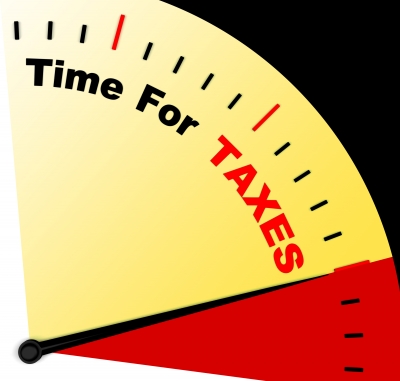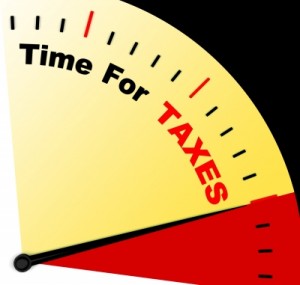Are You a SETuP – Self-Employed-Tax-Procrastinator?

 It’s April 30 (or April 15 if you’re American) and your tax return isn’t done. Again. Maybe you’ve got that sick feeling in the pit of your stomach. Maybe you’re clinging to the hope that the deadline is really June 15 or that you don’t owe much.
It’s April 30 (or April 15 if you’re American) and your tax return isn’t done. Again. Maybe you’ve got that sick feeling in the pit of your stomach. Maybe you’re clinging to the hope that the deadline is really June 15 or that you don’t owe much.
It’s got to stop. Promise yourself that 2014 is going to be different. Then do something to make it different. Start by getting out your calendar. We’re going to book some deadlines.
The CRA is Not Your Friend . . .
. . . but the Canada Revenue Agency is not your enemy either. While they come down hard on you if you don’t pay what you owe when you owe it, they also give you time. You just have to use it well. April 30 is not the time to start planning for what should have been done before December 31.
Here are a few useful dates:
- December 31 – Note the odometer reading on your car if you use it for business. It will make calculating your business use deduction that much easier. If you forget, then get the Km reading from the mechanic’s invoice closest to year end and estimate.
- January 15 – Promise yourself to invoice all your clients, customers and projects up to December 31. Pinky swear!
- January 31 – Tax installment due
- February 28 – T4’s to employees (I wish!) and RRSP contributions (date varies)
- March 31 – Partnership information return (You’re not doing this alone, are you?)
- April 30 – Final Payment for previous year (yes, even if you can wait until June 15 to file.)
- May 15 – Make a date with your accountant to plan the next year. December is too late for tax planning, but don’t even try to talk to them in April.
- June – Filing deadline for self-employed (and spouses), also next tax installment (that came fast, didn’t it?)
- July – Does your business slow down in the summer? Then that’s a good time to change your systems to make them easier for you. See the strategies below.
- October 31 – Shell out another tax installment
Your Tax Accountant
Trust me, your accountant doesn’t want to have to sort through random lists of transactions and a stack of paper to prepare your return, so ask them what would make their life (and yours!) easier. How should you organize your records? What software should you use (hint: Quickbooks, Freshbooks or Sage)? What categories of expenses are most useful?
Take a few moments to ponder what your next year will be like. What will you need to purchase? What is your income likely to be? However informal your plan might be, write it down and transfer any key dates to your calendar.
Be Honest With Yourself
If you find yourself starting sentences with the words “I should . . . ” stop right there. Beating yourself up for a lack of discipline, organization, etc. etc. isn’t going to solve this problem. Recognizing that you are not alone and looking into how others have addressed the same issue is. What is your Achilles heel? Whatever it is, e.g. tracking your time, pricing the job, working with subcontractors, following up with people, keeping track of what you paid for etc. start asking other people for their recommendations for software that will make it easier for you to stay up to date.
Let’s say that tracking expenses is a constant struggle for you. Here are two simple strategies:
- Put business expenses on a separate credit card. Later, download your purchases into a spreadsheet that you keep updating for the whole year. Your purchases will all be in one place and will be easy to put into the right financial category / account.
- Stop writing manual cheques. Producing cheques from an accounting package is quick and then you’ll never have to enter them again. (Reconciling the bank account is easier too, but let’s walk before attempting to run.)
The New Accounting Systems
Accounting systems are much easier to use than they ever were. (Note, I said “easier”, not “more fun.”) Newer packages, such as the ones mentioned above, are designed with the non-technical user in mind. They have tons of help. They use plain English. They take advantage of the internet to connect with your bank, your payroll service, your web site and PayPal.
A word of caution: use someone with accounting experience in your industry to set up the system. They will be able to guide you about what choices to make in organizing your accounts, setting up your vendors, entering your customers / clients and dealing with tax requirements. Time spent planning your system will pay for itself over and over.
Next Steps
OK, what were you going to do again? Oh yeah, put a reminder to make a date with your accountant in your calendar. Now, that wasn’t so hard, was it?
Image courtesy of Stuart Miles / FreeDigitalPhotos.net
Thanks Bill! I needed that! ;P